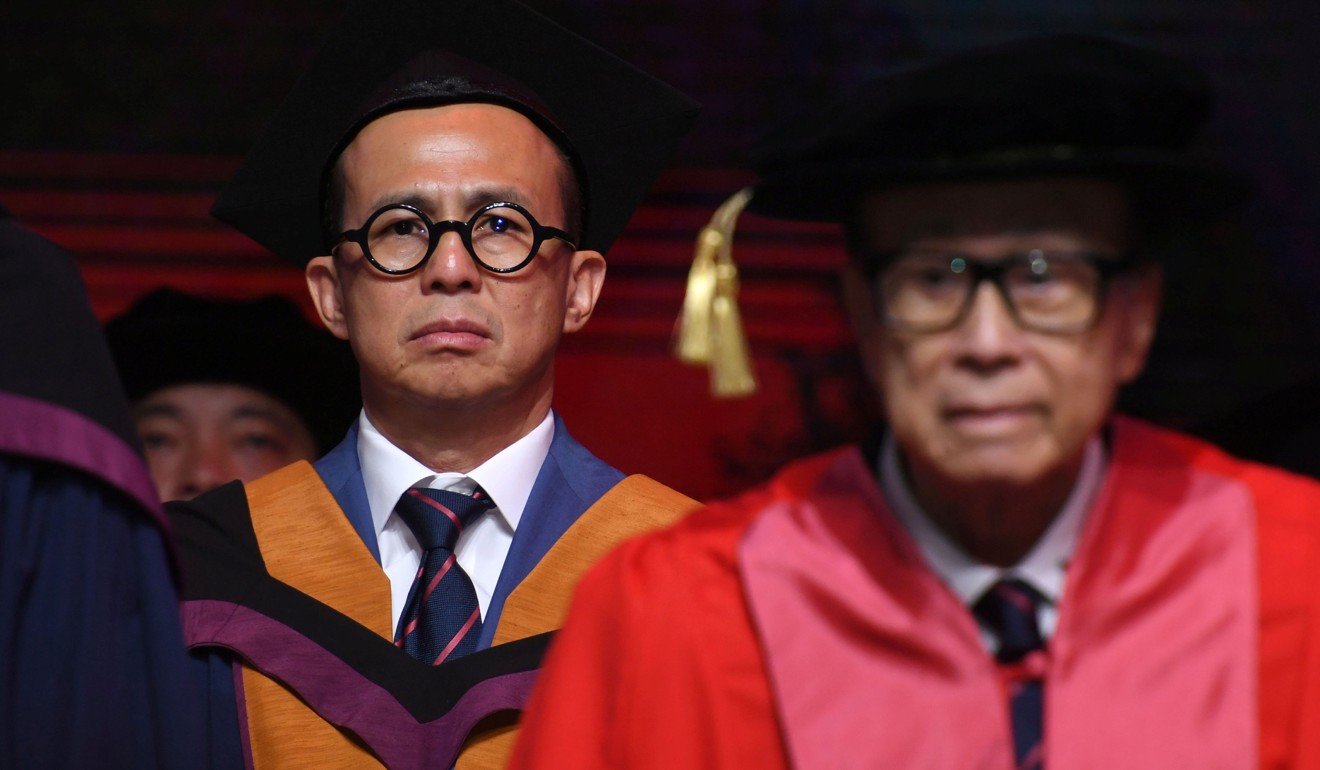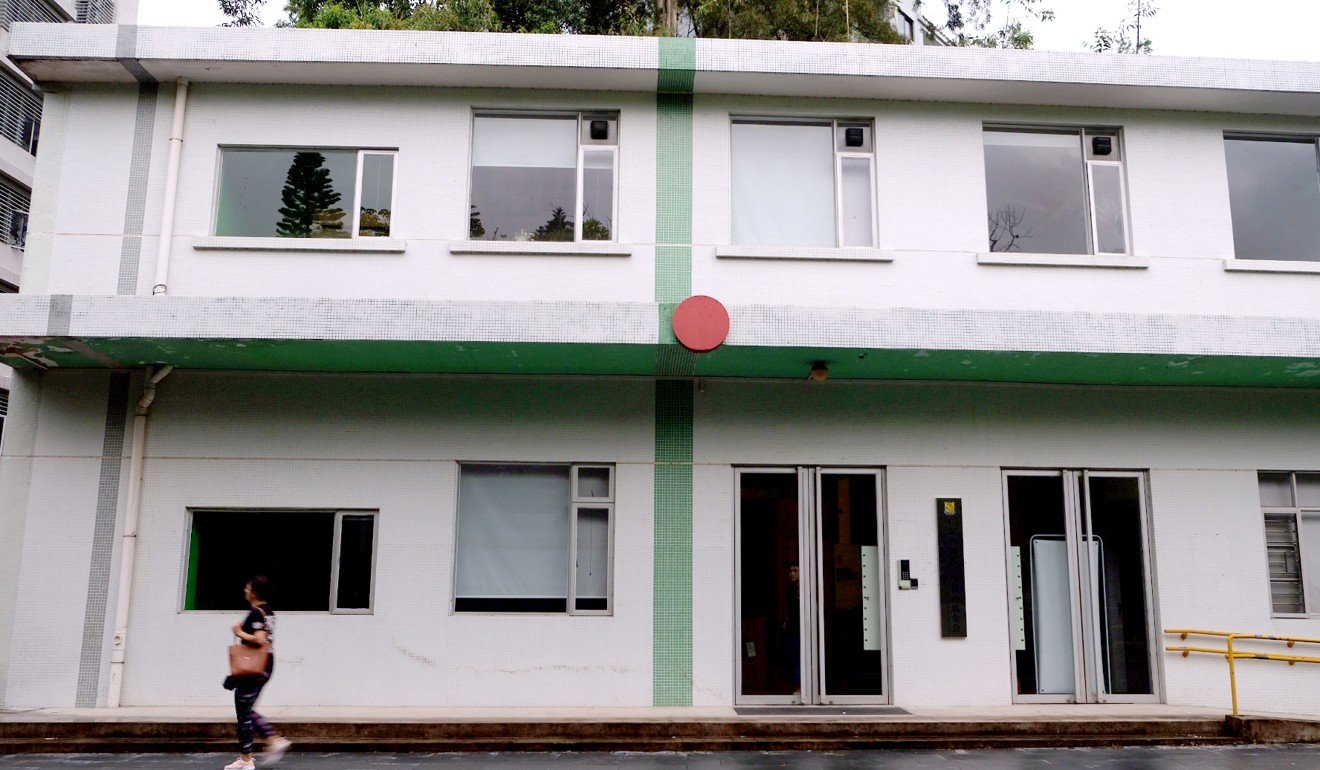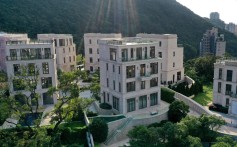Hong Kong tycoon Li Ka-shing’s influence threatened at Shantou University, which he helped found
- Hong Kong’s richest man has given more than HK$10 billion to international-minded school in his hometown
- But he was set to miss a graduation ceremony for first time in 18 years, and his son has been asked to leave the governing council
Li Ka-shing helped found Shantou University in his hometown 38 years ago. Photo: Imaginechina
The influence of Hong Kong’s richest man could be on the wane at a university he co-founded and donated more than HK$10 billion to, with his son asked to leave its governing body and neither of them set to attend Friday’s graduation ceremony, the Post has learned.
According to two sources at Shantou University, which Li Ka-shing helped establish in his Guangdong hometown 38 years ago, the 90-year-old will not attend the annual ceremony on Friday morning, the first time in 18 years he will miss an event at which he customarily gets the red-carpet treatment.
His youngest son, Richard Li Tzar-kai, whom Li earlier said would carry on his work at the university, will also not attend, the sources added.
One source said the university had proposed removing Richard Li from the school’s governing council over the past few months.

Richard Li (left) was enlisted to maintain the family’s influence at the university. Photo: Reuters
The news came as the Communist Party tightens its ideological grip on university campuses, and amid accusations that Li – who moved from Shantou to Hong Kong when he was 12 – is drawing down his investments in mainland China, despite his repeated denials.
“Dr Katherine Lo, executive director of the Li Ka Shing Shantou University Foundation, will represent the foundation at this year’s graduation ceremony,” a spokesman from the Li Ka Shing Foundation said, referring to the related trust through which the billionaire donates to the university.
He did not comment on whether the father and son would attend.
The younger Li, who in 2017 started joining his father at graduation ceremonies, was enlisted to maintain the family’s influence at the university.
By June 2018 he was a member of the council. That year, as Li Ka-shing stepped down as honorary council chairman, he hinted that his son would take his seat, saying: “My son Richard and my colleagues will continue my mission and work.”
However, the Post has learned that this year’s council meeting might not go ahead, and Richard Li could be removed from the council.
The panel, comprising more than 20 members from government and academia, had been led by Li Ka-shing as honorary chairman and a deputy provincial head of Guangdong province as chairman. A plenary and working meeting is held annually, usually immediately after the graduation ceremony.
“Usually we should have received notice about security arrangements at this time because of the council meeting … But we have nothing so far,” a teacher at the university said on Monday. Another teacher close to the university’s top leadership said the council meeting was unlikely to happen.
Asked if Richard Li would be removed from the council, a Li Ka Shing Foundation spokesman said it was “not aware of the move”, adding: “Together with Mr Li Ka-shing, Mr Richard Li will continue to support Shantou University as a director of the foundation.”
The Post contacted the university for comment.
The foundation’s presence at the university has been diminishing over the past year. In November 2017, both parties denied reports that the foundation had withdrawn from the university.
However, the foundation said its office in the university, together with its offices in other parts of China, were merged and relocated to Shenzhen due to government regulations.
The Post visited the campus on Monday and found no sign of the foundation. Its logo had been removed from the building where its office used to be.

The Li Ka Shing Foundation’s logo has been removed from the building where its office used to be. Photo: Karen Zhang
The billionaire’s charity, of which both Li Ka-shing and Richard Li are directors, has donated more than HK$10 billion (US$1.28 billion) to the university, jointly funding it along with the Ministry of Education and the Guangdong provincial government.
Shantou University announced earlier this month that all new undergraduates, about 3,100 first-year students, would get free education throughout their four years at the university. The undertaking – the first of its kind in China – was funded by the foundation to the tune of up to 100 million yuan (US$14.5 million) each year.
I don’t think it’s surprising that [Li Ka-shing’s] influence is getting forced out from the university
The Post has learned that the foundation will offer the university an extra 125 million yuan annually, to fund projects which will be decided by the university and the foundation together, with a focus on the medical and business schools and support for innovation and technology.
“I don’t think it’s surprising that [Li Ka-shing’s] influence is getting forced out from the university,” news commentator Ching Cheong said, noting the party’s increasing influence on university campuses since President Xi Jinping took office.
He noted that the tycoon’s image and prestige had been weakened in recent years as he was badmouthed in party media for supposedly withdrawing investment.
As Beijing tightens ideological control over Chinese universities across the country, party officials at Shantou University are taking steps to reverse decades of relative freedom at the international-minded university. Teachers, including foreigners, are required to attend ideological classes; students are not allowed to join overseas internship programmes.
The Post reported earlier that in March, the school was accused of doing a poor job toeing the Communist Party line and resisting illegal religious “infiltration”. Party inspectors urged it to more closely monitor comments by students and teachers in class and on the internet, to “enhance management” of foreign teachers, and to select academic leaders by looking at their political backgrounds. Every academic institution in China is controlled by a party committee answering to senior cadres.
The recent changes may not come as a surprise to the older Li.
In an interview with mainland Chinese media last year, he said: “The university is mature now. Will it need us in the future? The foundation can offer help all the time, but won’t be deeply involved in the regular administrative work.
“Universities are the most politically sensitive places. We are in Hong Kong; we are not familiar with many things on the mainland.”












Comments